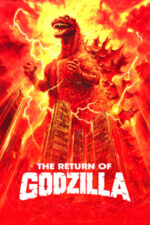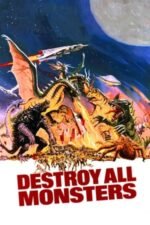More Than Just Roars: Exploring the Enduring Legacy of Godzilla
Okay, let's talk about Godzilla. Not just the giant lizard smashing buildings (though that is undeniably awesome), but what he represents. Because honestly, this isn’t just a monster movie franchise; it’s a cultural phenomenon with surprising depth. I remember being utterly captivated by the rubber-suit effects of the original as a kid – pure spectacle! But revisiting those films now, especially in light of more recent iterations, reveals something far richer than simple destruction.
Godzilla's genesis is inextricably linked to post-war Japan. The 1954 original wasn’t just about a giant monster; it was a potent metaphor for the devastation wrought by nuclear weapons and the anxieties surrounding them. Think about it: a creature born from atomic testing, rising from the depths to punish humanity – it's pretty heavy stuff! That initial film, even with its re-edited American version (the Spectrorama 70 colorization is fascinating in itself, a bizarre artifact of the era’s attempts at cinematic innovation), carries that weight.
What’s remarkable is how Godzilla has evolved while retaining this core thematic resonance. Godzilla Raids Again, for example, doubles down on the sense of overwhelming powerlessness – two monsters marching towards Osaka! It's less about a clear villain and more about humanity facing forces beyond its control. Then you have films like All Monsters Attack, which, while leaning into a slightly lighter tone, still uses the monster world as an escape for a young boy struggling with poverty and bullying. It’s a surprisingly poignant commentary on finding solace in fantasy when reality is harsh.
And then there's the sheer creativity of the franchise! The '90s brought us Godzilla vs. Mechagodzilla, which, while undeniably fun, introduced this fascinating element: what if humanity created its own monster? It’s a clever twist that speaks to our hubris and potential for self-destruction. Even the more recent films, like those showcased in "70 Years of Godzilla," continue to explore these themes through different lenses, often incorporating commentary on environmentalism and global politics – fittingly bringing Godzilla to Southeast Asia allows for a fresh perspective on his impact.
Godzilla isn’t just about spectacle; he's a mirror reflecting our fears and anxieties back at us. He’s a symbol of nature’s power, the consequences of unchecked technological advancement, and ultimately, humanity’s struggle for survival. So next time you see him stomp across the screen, take a moment to consider what else he might be saying. You might just be surprised by what you find.
What are your favorite Godzilla films? I'd love to hear!







































